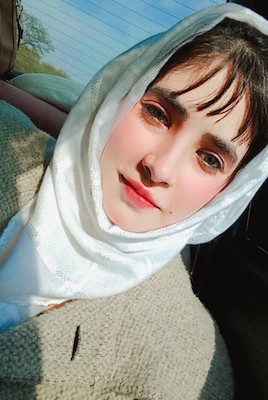| Wed. July 16, 2025 | |

|
|
|
 The Middle East is crucial to China's objectives because it sits at the intersection of the three continents, according to the authors' thorough examination of China's geoeconomic stake in the region. As the Middle East is a region rife with conflict, it is quite likely that China's geoeconomic goals will evolve, and it will place a greater emphasis on geopolitics there. The regional states' push for economic diversification and consolidation may also help China get politically involved and start attempts to end hostilities amongst regional rivals. China gained prominence in the international arena by boosting its economy and spending its surplus funds overseas, giving it a dominant position worldwide. Global World Order Transformation: Analysts see China's efforts to mediate a deal between Iran and Saudi Arabia as signs of a "changing global order." Saudi Arabia and Iran agreed to re-establish diplomatic relations and reopen their embassies. The agreement also stated that "state sovereignty and non-interference in state internal affairs" were to be respected. China, it is argued, will continue to play a constructive role in dealing with hotspot issues and demonstrate responsibility as a major nation, China had fulfilled its role as a "trustworthy" and "reliable" mediator. There are many opportunities and questions for Pakistan in China's Iran-Saudi deal. There are many opportunities for Pakistan in China's Iran-Saudi deal. Pakistan, which has frequently been caught in the crossfire between rivals, is looking forward to calmer Saudi-Iran relations and reaping economic benefits through its partner, China. Pakistan attempted to resolve the regional schism as soon as it occurred and has continued to mediate over the years. Islamabad, which has the second largest Shiite population after Iran (though it is a majority Sunni state), has had to deal with religious and sectarian violence from extremist groups on both sides whenever the situation deteriorated. If Pakistan uses this opportunity wisely, it could be one of the biggest winners of this deal. Pakistan was one of the first participants in President Xi Jinping's mega-project, the Belt and Road Initiative, due to its reliable ties with neighbor China. Areas of Cooperation between Iran-Pakistan: China has so far invested nearly $26 billion in the project, which has now entered its second phase. Saudi Arabia and Iran were both invited to participate in this trade connectivity project, but their contributions were minimal. With their bilateral differences set aside, both China and Pakistan stand to benefit from participation or investment in various CPEC projects. Pakistan and Iran, which share religious, linguistic, and cultural affinities, have enormous potential for cultural and religious cooperation. Both countries' peoples are descended from Aryans. Spiritual and religious ties among the Sufi and Shiite communities have brought both countries closer together. Respectable relationships have been profoundly shaped by Persian culture, poetry, and language. Both countries agreed to increase their economic potential by up to $5 billion, but they are unable to do so because many domestic and external factors create roadblocks to economic and regional cooperation. Pakistan can overcome its energy crisis by importing cheaper oil and gas from Iran, and Iran can stabilize its economy despite ongoing political unrest and international sanctions. Because both countries are resource-rich neighbors and, more importantly, because they are located in a geoeconomically significant region that connects South and West Asia with the energy-rich Central Asian Republics, Pakistan and Iran have a great opportunity to significantly increase their economic cooperation in the region (CARs). Energy and trade are examples of bilateral economic cooperation. Energy, aviation, livestock, agricultural industry, and religious tourism are all excellent areas for bilateral economic cooperation. Given Pakistan's economic crisis as a result of political instability and catastrophic flooding, Islamabad would welcome a rapid increase in cross-border trade with Iran and investment from the Kingdom, as well as possible joint ventures with Tehran and Riyadh. Pakistan can import oil/gas from Iran at lower prices, and as an immediate neighbor, both countries can engage in barter trade. Despite close political and geographical ties, US sanctions against the Islamic Republic have prevented Iran-Pakistan economic ties from reaching their full potential, primarily because the Islamic Republic cannot access international banks. To address the aforementioned issue, the two countries signed a barter trade agreement in November 2021 in Tehran during the Joint Economic Committee meeting. All four conventional modes of transportation—air, sea, road, and rail—are available for bilateral trade between Pakistan and Iran, but none are currently used effectively or economically. Because there were no financial connections with Iran, some problems with doing business with Tehran arose; the barter trade agreement is supposed to solve these problems; barter trade is relief amid economic sanctions on Iran. The Iran-Saudi rapprochement may provide Pakistan with numerous opportunities, including bringing the Muslim world closer together for the Kashmir cause, ensuring the success of the China-Pakistan Economic Corridor and China's Belt and Road Initiative (BRI), and improving overall regional security. The reconciliation may also help to reduce religious tensions within Pakistan's population, where 20-25% of the population is Shia. Pakistan's diversity and historical ties to both Tehran and Riyadh can help to improve regional peace and dialogue between Iran and Saudi Arabia. Maria Mansab is a MPhil Scholar at School of Politics and International Relations, Quaid I Azam University Islamabad, working on her thesis “Pakistan-Iran Economic Relations: Challenges and Opportunities.” Her areas of Interest are the Middle East and South Asia, International Law, and Gender Issues.
|
|
| Contact Us | About Us | Donate | Terms & Conditions |
|
All Rights Reserved. Copyright 2002 - 2025
